Recommitment to AASCU’s American Democracy Project
At this critical juncture in the nation’s history, we invite all AASCU member institutions to commit to the American Democracy Project.
Make your commitment.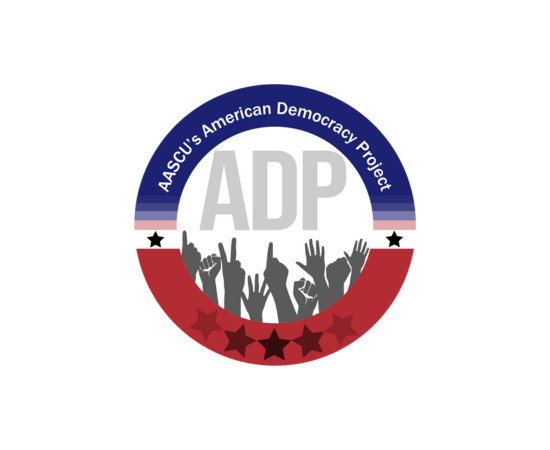
AASCU’s American Democracy Project creates engaged global citizens for a just society.
For over 20 years, AASCU’s non-partisan American Democracy Project (ADP) has engaged thousands of campus leaders, faculty, staff, and students in a broad network of regional public universities to instill all students with knowledge and skills, preparing them to be informed and engaged global citizens, empowered to create a more just society and world.
At this critical juncture in the nation’s history, we invite all AASCU member institutions to commit to the American Democracy Project.
ADP campuses are committed to the nonpartisan project of preparing students who are ready to participate and lead effectively as global citizens in a multicultural society. They model open, democratic engagement on important issues from multiple perspectives for the communities and regions that they serve. ADP institutions foster an ethos of civic-mindedness throughout the institution; make civic learning and democratic engagement an expectation for every student; practice civic inquiry across the curriculum; and advance civic action through democratic processes and practices.*
*Based on the key recommendations for higher education in A Crucible Moment: College Learning & Democracy’s Future (AAC&U, 2012).
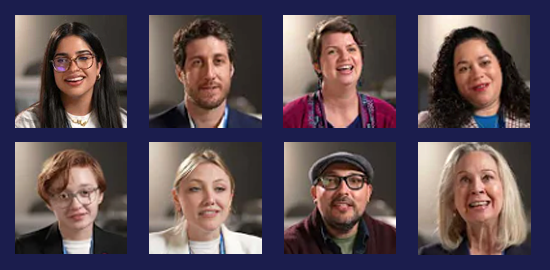
Students, faculty, staff, and administrators shared their experiences with ADP at the Civic Learning & Democratic Engagement Meeting in June 2023.
Watch playlist.Thank you
We celebrate the institutions who have already committed to AASCU’s American Democracy Project.
Confirmed committments.Commit Now
If your institution has not yet committed, we invite you to encourage your president/chancellor or provost to do so via this form.
Make your commitment.Questions?
We recognize that this work requires thoughtful conversation, so please reach out to Cathy Copeland, director of ADP, with any concerns.
Contact us.AASCU recognizes that each institution engages in ADP according to its unique mission, history, and context.
ADP campuses have access to:
- A broad network of leaders, faculty, staff, and students who share resources and generate collaborative research and scholarship
- Regular convenings, including at the annual Civic Learning and Democratic Engagement meeting
- Professional and leadership development to help leaders at all levels to create, maintain, and lead civic-minded institutions
- ADP’s extensive national partners network
- Opportunities to participate in grant-funded national projects, programs, workshops, writing circles, and other initiatives to help them achieve their mission
What does it mean to commit to the American Democracy Project?
- President/Chancellor, Provost or designee completes this simple form.
- Campus must be an AASCU member
- Annually, the campus identifies someone to serve as ADP coordinator, the liaison between AASCU and the campus
- Campus participates in regular assessment of ADP impact
We commit to the American Democracy Project.
At this critical juncture in history, we invite all AASCU member institutions to commit to AASCU’s American Democracy Project
to prepare students to be engaged global citizens in a multicultural society and world.
On behalf of my institution, I commit to the nonpartisan goals of AASCU’s American Democracy Project:
- Make civic learning and democratic engagement an expectation for every student
- Integrate civic inquiry across the curriculum
- Model open, democratic engagement from multiple perspectives
- Foster an ethos of civic-mindedness
- Advance civic action through democratic processes and practices
My institution will identify an ADP liaison and participate in regular assessment of civic engagement impact. As an American Democracy Project campus, my institution will have access to:
- Recognition as part of the American Democracy Project network
- Resources, national partners network, conferences, and grant-funded projects
- Professional and leadership development to help leaders (at all levels) create, maintain and lead civic minded institutions
From the American Democracy Project Archives
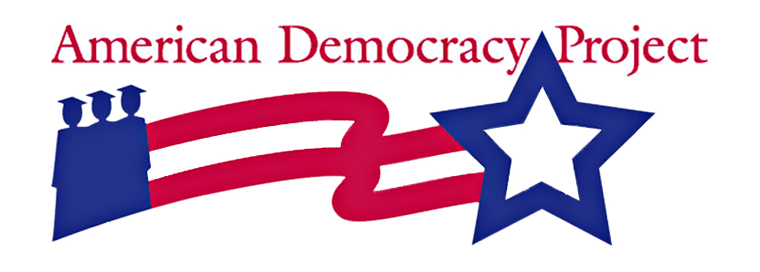
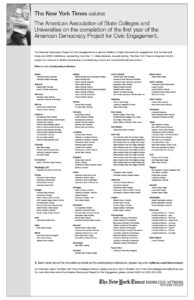
The New York Times salutes The American Association of State Colleges and Universities on the completion of the first year of the American Democracy Project for Civic Engagement See ad.
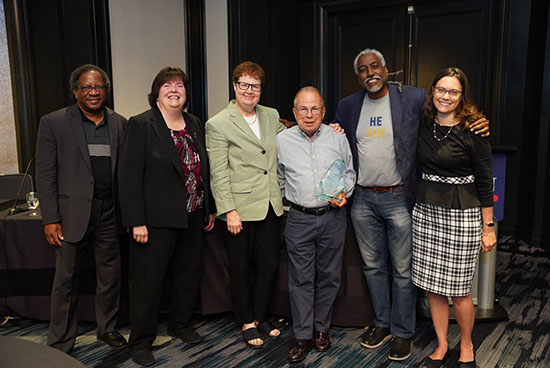
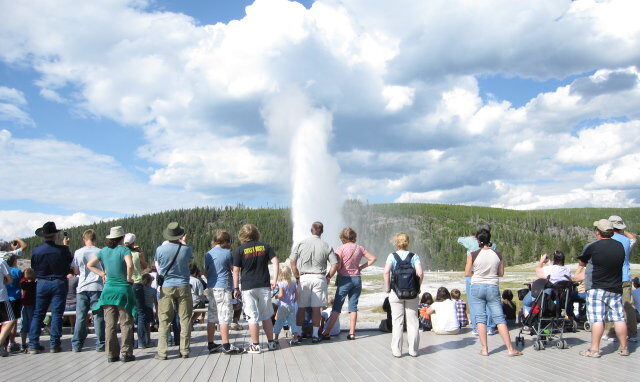
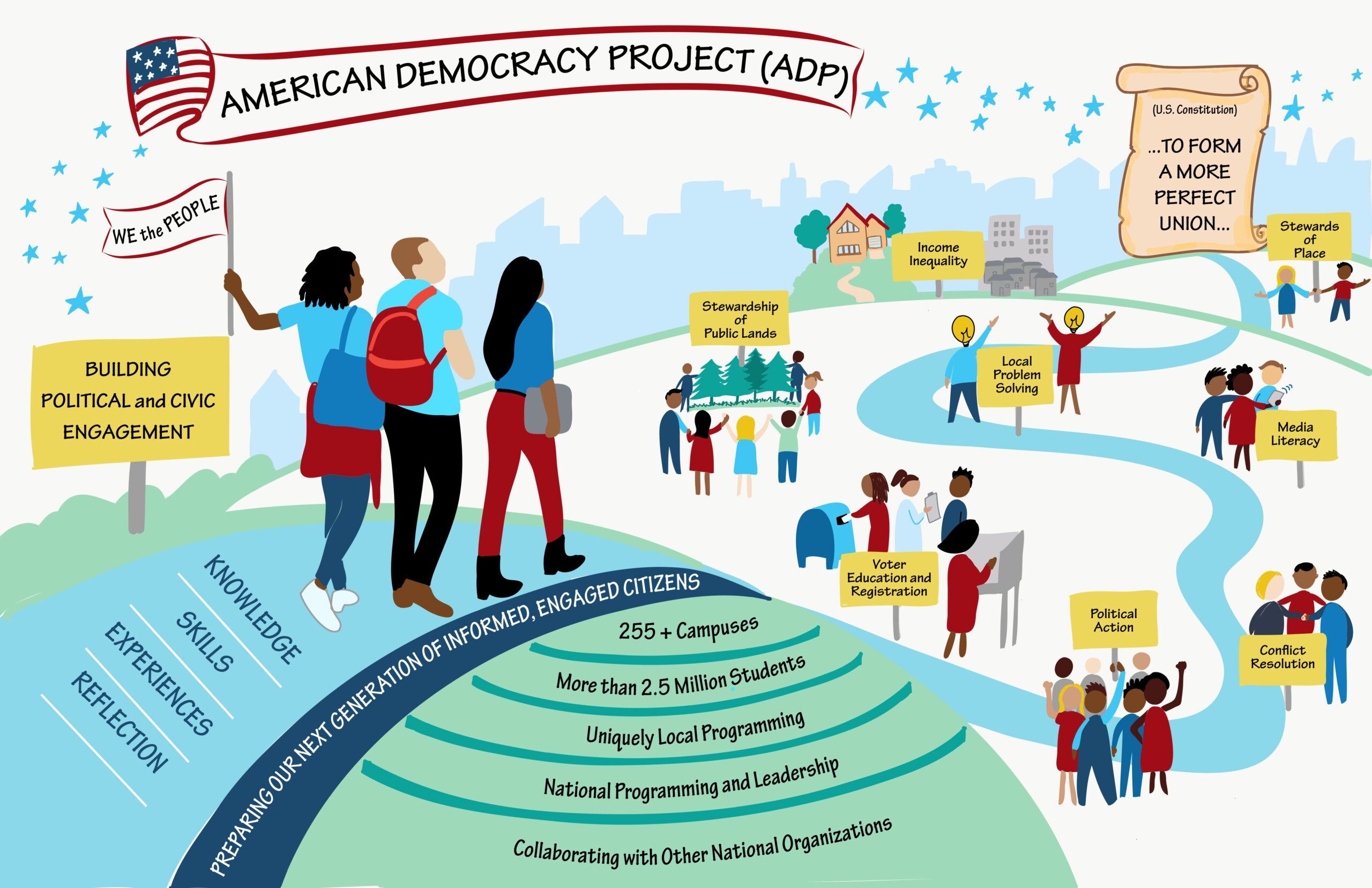
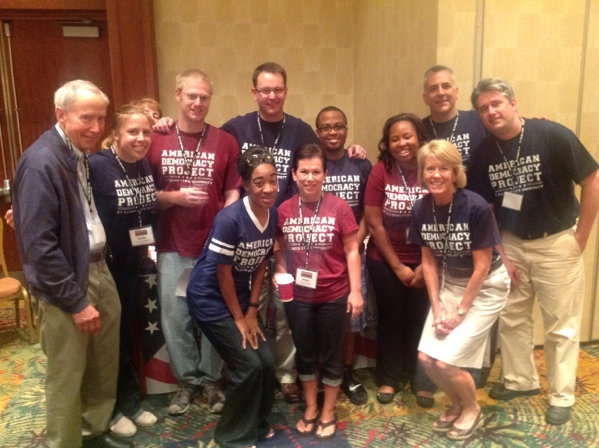
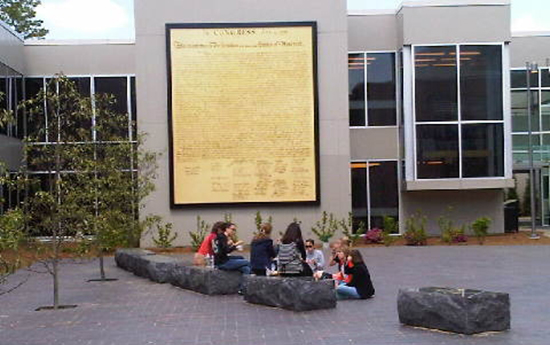
Membership in ADP allows ready access to partnerships and resources.
We thank our partners for their continued work to strengthen democracy by providing the following resources.
AASCU
AASCU Campuses
- Mind Over Chatter
Created by Indiana University, Kokomo - Political Diagnostic Tool
Created by Weber State University and Keene State University campuses
The New York Times
Collaboratory
- Why Track Community Engagement
- Enacting the Vision: Institutionalizing Civic and Community Engagement on Campus
Overview of Collaboratory’s partnership with AASCU institutions to institutionalize community engagement on campuses. - From Random Interactions to Intentional Agendas: Curating a Community-Engaged Image and Identity through Data
A white paper describing how community engagement data can influence an institution’s image and identity
CFR Education (from the Council on Foreign Relations)
- What Kinds of Governments Exist?
Explore the differences between democracies and autocracies, communism and capitalism, and right and left leaning ideologies. - What Is Government?
In this video, understand what government is and to what extent your voice is heard by those in power. - Laws, Norms, and Democratic Backsliding
Learn about the principles that underpin democracy and the countries in which they are under threat. - U.S. Government and Civics Resources from CFR Education
Widen your lens on a global perspective of U.S. government, history, and civic learning with this curated list of videos, simulations, articles, and timelines. - 2021-2022 World101 and ADP AASCU Toolkit
- 2020-2021 World101 and ADP AASCU Toolkit
National Study of Learning, Voting, and Engagement
- Election Imperatives
Drawing from our research on college student voting and the campus climates of highly politically engaged institutions, this report offers ten recommendations to improve campus conditions for political learning, discourse, engagement, and agency during election seasons and beyond.
Visual Capitalist
- Economist Intelligence Unit’s Democracy Index Report
An annual report that attempts to measure the state of democracy and is centrally concerned with political institutions and freedoms.
Bipartisan Policy Center (BPC)
- BPC Explainer Blog
DEI Legislation, Academic Freedom, and Free Expression: Where to Go from Here?: Assesses the scope of DEI policies, explores toward transparent relationships with legislators and boards of regents, and recommends adjustments to acknowledge academic freedom and free expression concerns.
Bringing Theory To Practice
- The Paradigm Project
A multiyear initiative that aims to develop new models of holistic, inclusive, engaged learning and to activate systemic change—not simply piecemeal innovation—across higher education.
National Issues Forums (NIFI)
- Resources to Organize Deliberative Dialogues
Deliberative learning is an approach to education that emphasizes dialogue, inquiry, and choice making. Deliberative learners explore complex topics in-depth, consider diverse perspectives on these topics, identify and work through tensions inherent to those views, and attempt to arrive at reasoned judgment. When used to support students’ development as citizens, deliberative learning takes on a public dimension: students grapple with issues of public significance in order to arrive at a shared decision.
Project Pericles
- Civic Engagement Resources
Project Pericles’s civic engagement resources are for faculty, across all disciplines, who are interested in: civic engagement course syllabi, community-engaged learning, deliberative dialogue, nonpartisan voter education, and addressing voter suppression.
More Perfect
- Ask and All: A Plan to Expand National Service & Volunteering
A plan to create within a decade a rite of passage, common expectation, and common opportunity for more than 1 million young Americans as they come of age and 500,000 older Americans as they seek an “encore career” to perform a year of national service.
Unify America
- Unify Challenge College Bowl Overview
This is a two-pager about the Unify Challenge College Bowl. The Unify Challenge College Bowl is a face-to-face video conversation between two students who attend different schools and may vote differently, live in different geographies, or have different life experiences.
The Citizens Campaign
- Booklet: The Citizen Service
Overview of our plan to build a new national public service of citizen leaders and local problem-solvers. - Leadership and No-Blame Problem Solving
A free certificate course that you can take any time online to learn how to get things done like practitioners of local government. - Course flyer: Leadership and No-Blame Problem Solving
An overview of our free, self-paced online certificate course that teaches citizens how to get things done like practitioners of local government. - Webinar: Closing the Civic Empowerment Gap
A conversation with two college presidents and other leaders on how to empower diverse students for leadership.
College Futures Foundation
- From Persisting to Thriving: How We Can Act Now to Support College Student Wellness
The publication surfaces critical observations from a scan of California’s policy and funding landscape around college student mental health conducted by our partners at Learning For Action, as well as an analysis of the larger societal narratives shaping policy and funding decisions.
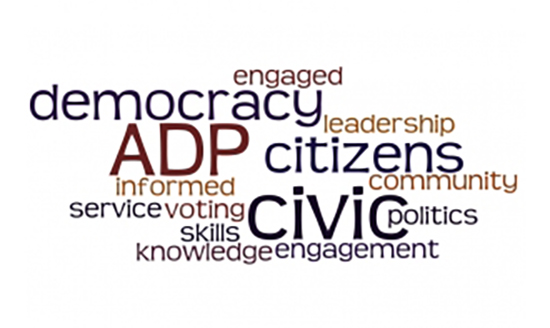
Specific to Voting
Fair Elections Center
- Fair Elections Center’s Campus Vote Project
A program that operates on a bi-annual bias assisting institutions to develop on-ramps to our Democracy for their students, primarily through nonpartisan political engagement and voting rights advocacy. The program is run jointly with NASPA and also recognizes the tremendous efforts of the participating institutions in the Spring semester after each federal election cycle.
Students Learn Students Vote
- Students Learn Students Vote (SLSV)
The SLSV Coalition is the national hub and largest nonpartisan network in the United States dedicated to increasing college student voter participation. This library is a collection of resources submitted by SLSV Coalition partners.
ALL IN Campus Democracy Challenge
- ALL IN Campus Democracy Challenge
The ALL IN Campus Democracy Challenge empowers colleges and universities to achieve excellence in nonpartisan student democratic engagement. - Senior Leaders are ALL IN to Vote
- Nonpartisan Messaging Toolkit for Faculty & Administrators
- Strengthening American Democracy: A Guide for Developing an Action Plan to Increase Civic Learning, Political Engagement, and Voting Rates Among College Students (V.4)